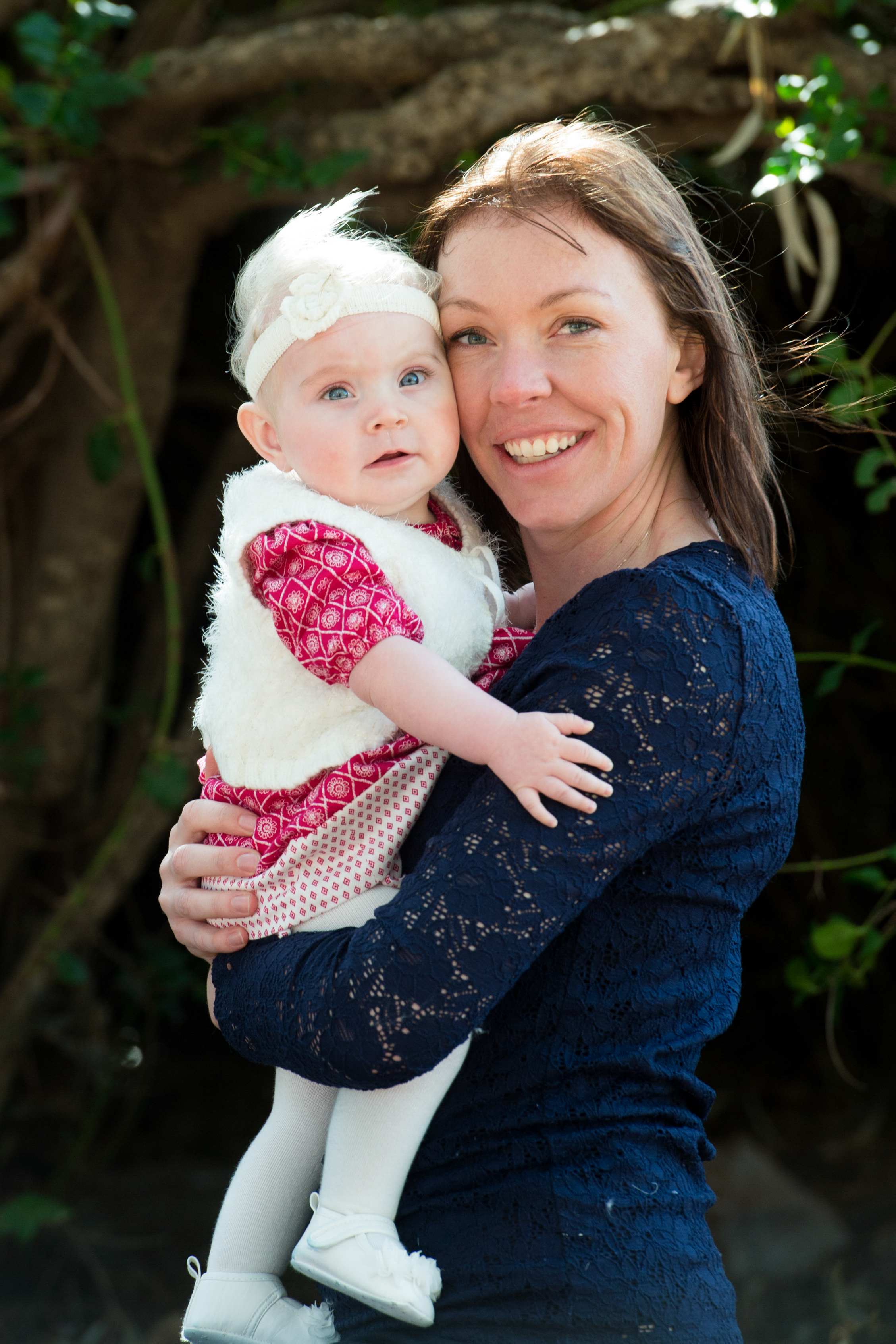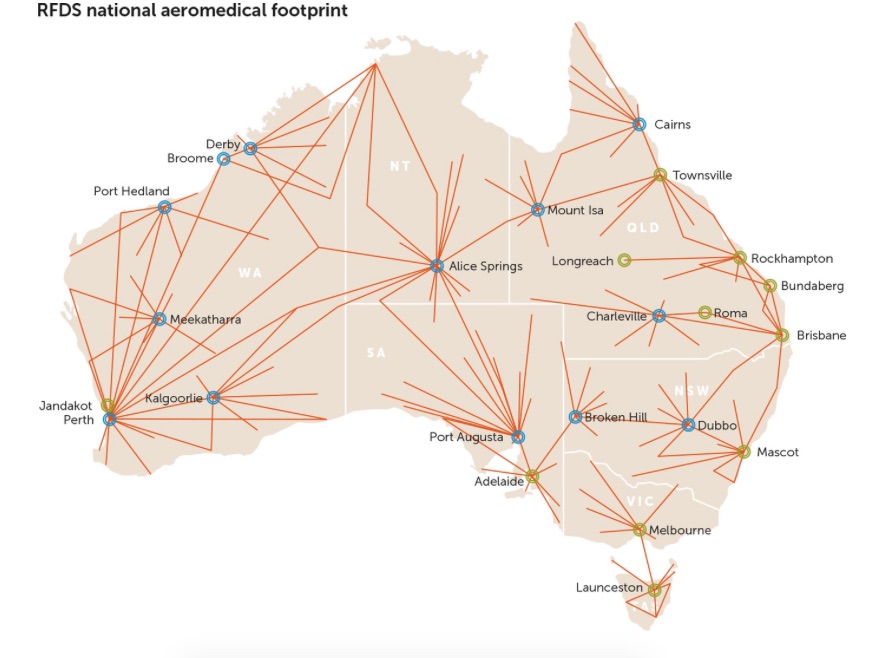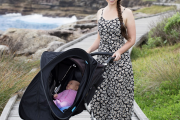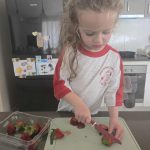“Without Access to the Royal Flying Doctor Service, Our 6 Month Old Daughter Scarlett Would Have Died.”
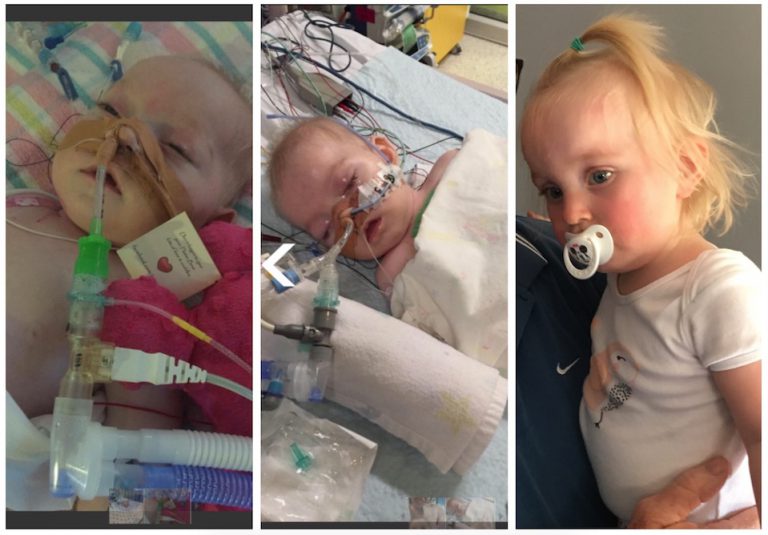
“Without Access to the Royal Flying Doctor Service, Our 6 Month Old Daughter Scarlett Would Have Died.”
When her six month old daughter Scarlett began vomiting up every feed, mum Morgan Wallis from Laura South Australia, could never have imagined what would unfold over the next 72 hours. Concerned about their baby girl, Morgan and her husband Ben took her to their local GP who suspected that little Scarlett had pneumonia. Scarlett was flown urgently to Adelaide by the Royal Flying Doctor Service (RFDS) where X-Rays were performed. At 3am the next day, Morgan and Ben were met by cardiologist Dr Terry Richardson who delivered the gut-wrenching news that little Scarlett had in fact a heart condition and needed to be flown to Melbourne for open heart surgery.
So serious was Scarlett’s condition, the Wallis’ were told that their daughter had a 15% chance of surviving the emergency flight to Melbourne.
“When we first found out she had a heart condition, the doctors at the WCH (Women’s & Children’s Hospital) were contemplating not sending us to Melbourne at all – they would keep Scarlett comfortable and alive long enough for family to get there and say goodbye. We found this out after we got back from Melbourne. I’m glad we found out after Melbourne as opposed to before we went,” explained Morgan.
“If it weren’t for the service of the RFDS taking Scarlett to Melbourne, with the aid of MedSTAR, Scarlett wouldn’t be here today. Having access to the RFDS was the crucial factor in saving Scarlett’s life. If we didn’t have access to this service, Scarlett would have died. She wouldn’t have made it by ambulance to Melbourne.”
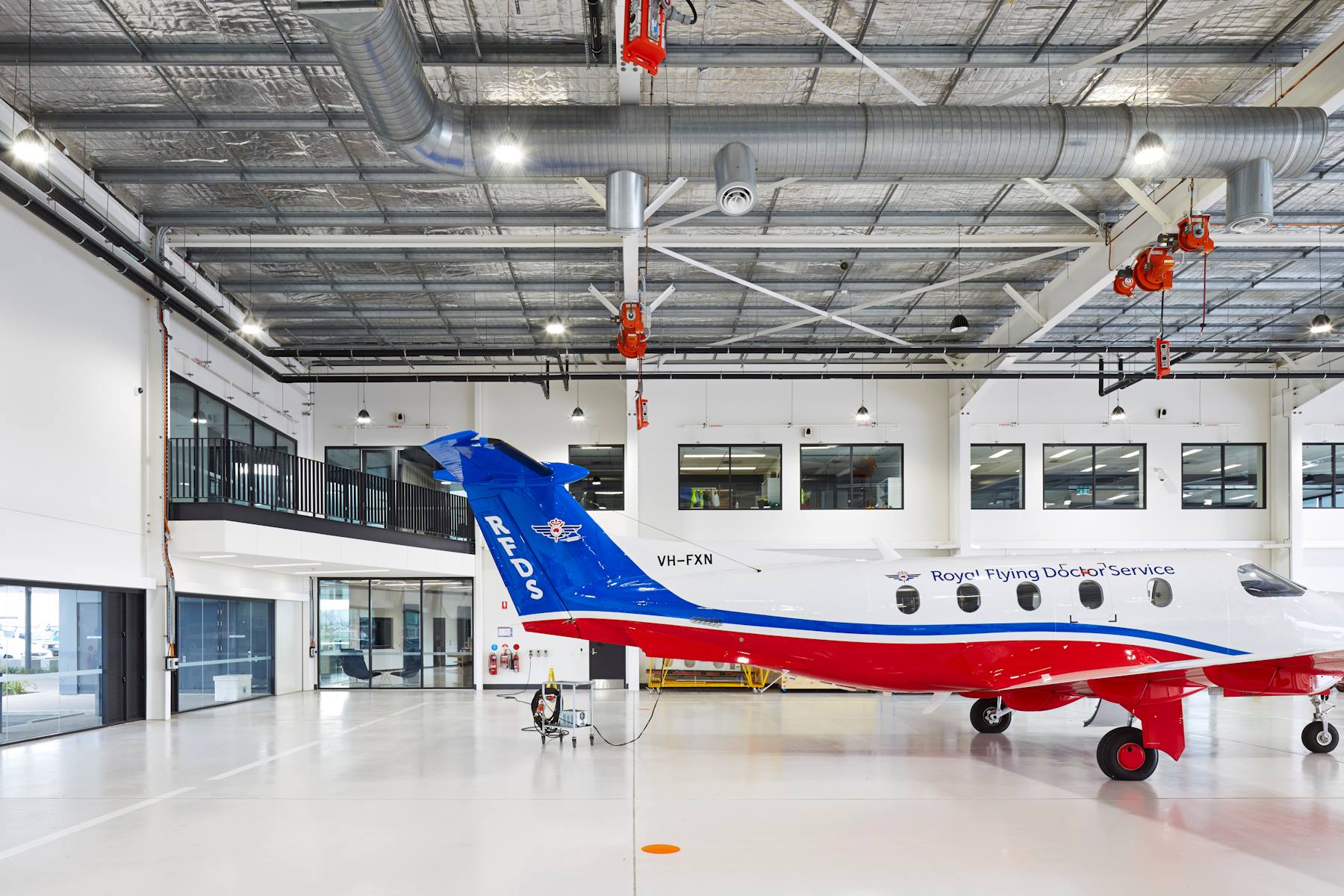
“The look of trust, compassion and dedication on the team’s face was something I will never forget. They were all fixated on her stat machine, ensuring she was settled and safe. Throughout the flight, I tried to read the team’s faces, but they gave nothing away. Any movements anyone made, they would check in with me to make sure I was comfortable. At one stage, the MedSTAR nurse (Jacqui) gave me her jacket to put over me as I must have looked cold. They offered me food, water and kept checking in to ensure I was ok. The care that not only Scarlett received, but myself, was beyond my expectations.”
After making it safely to The Royal Children’s Hospital in Melbourne, Morgan consulted with Dr. Yves. Scarlett’s heart was three times the size it should have been, she was living off just one lung and her tiny body was beginning to shut down. Scarlett was given 25% chance of surviving the operation.
After a tense wait, three hours after their daughter was wheeled into surgery, the Wallis family received the news that had been hoping for.
“My husband, sister in law and myself had just sat down to try to have some lunch when I saw my phone light up with an unknown number. Initially, my stomach dropped. It seemed too early for them to be calling us. It had only been 3 hours since she went in. My hands were shaking beyond belief as I slid the ‘answer’ button across the screen of my phone. In the calmest and most non-shaky voice I could muster up, I answered the phone. Yves’ first words were ‘the surgery was successful and they are finishing up now.’ Those 10 words I remember mouthing to my husband and the look of sheer relief that shot across his face will stay with me forever. Every time I eat chicken teriyaki sushi, I think of that defining moment in our lives.”
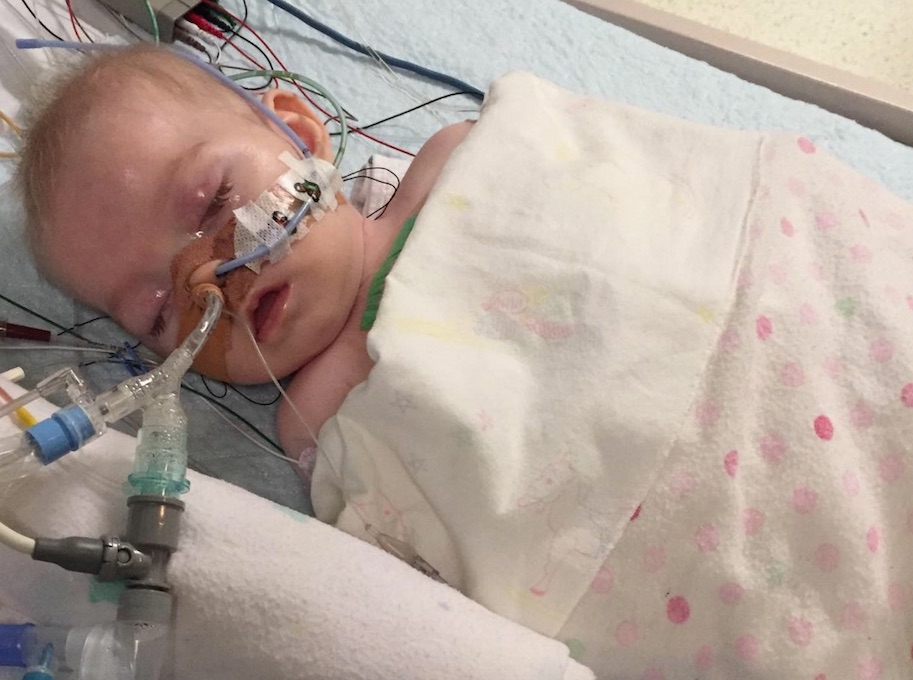
But this was just the beginning of Scarlett’s recovery. She was sent home with three different medications, including one to be injected twice daily and attended regular follow up appointment at WCH so cardiologists could monitor her heart and left ventricular function.
“After being fed through a nasogastric tube since February, we were working alongside a speech pathologist to overcome oral aversion and establish feeding. On the 18th July, 2016 – two days before a cardiology check up – Scarlett pulled out her NG tube – something that wasn’t uncommon for her – she was a terror that way! We decided to trial how well she did without it. Since that day, she has fed orally – slowly but surely – making progress. She still sometimes refuses to eat certain foods but that’s probably because she is a stubborn and strong willed almost 2 year old.”
“We consulted with a physiotherapist to try to catch Scarlett up in her gross motor skills as, because she had been sedated and bedridden for so long, she was behind in this area. Through intense work and consistency, Scarlett finally started walking and hasn’t looked back since.”
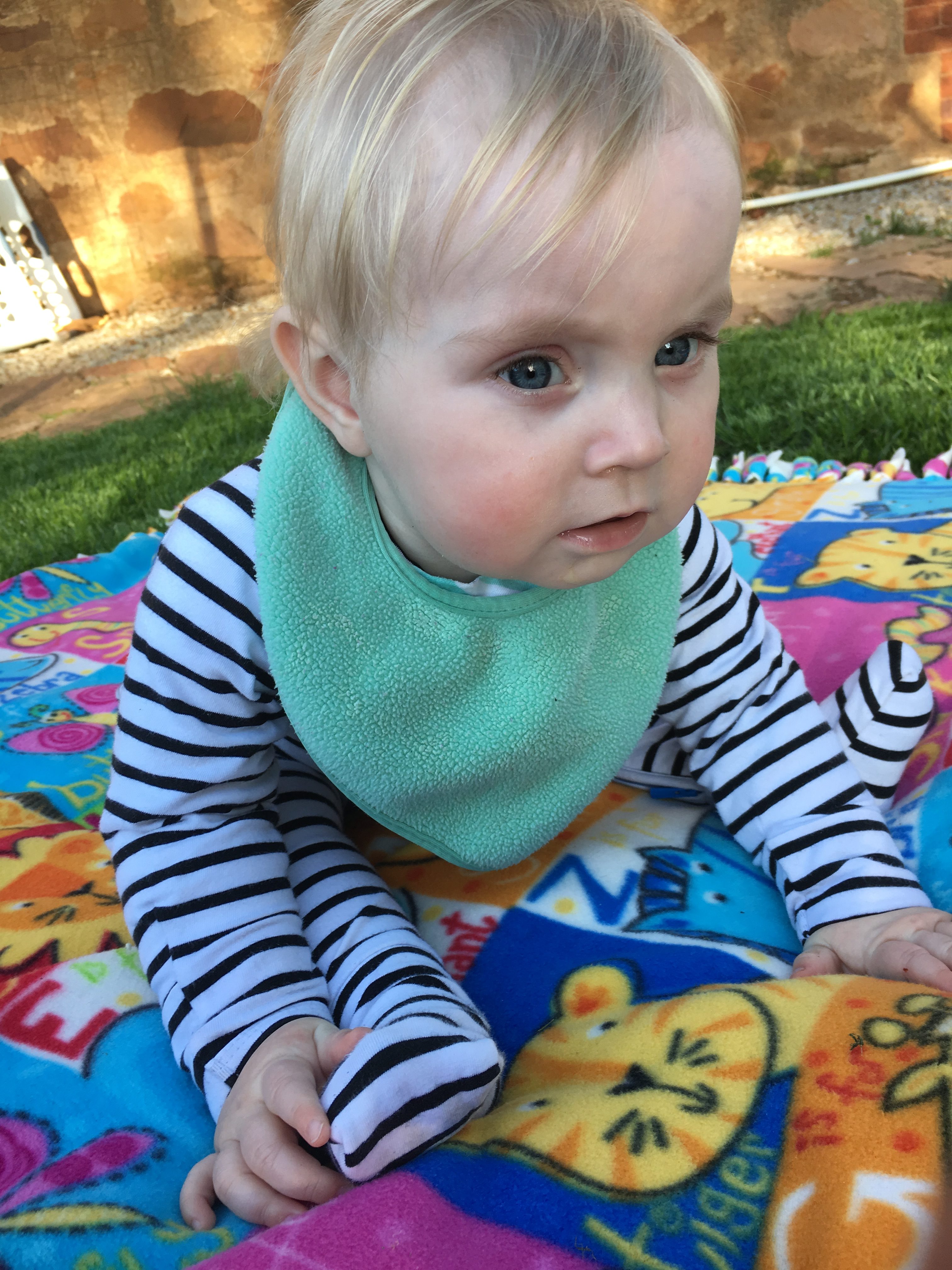
“Currently, Scarlett is on one medication to help with her heart and this will go down to once a day in September. We have another check up with cardiology in December where she may be off her medication fully and we may be able to go to yearly checks.”
With a fleet of 67 aircraft located at 24 bases across the country, the Royal Flying Doctor Service is the largest and most comprehensive aeromedical organisation in the world, providing essential primary health care and 24-hour emergency services to more than 280,000 Australians every year – equivalent to someone every two minutes.
A not-for-profit organisation, the Royal Flying Doctor Service relies on donations and support to keep flying and saving lives on a daily basis, which is why Cheap as Chips have pledged their support.
“We are delighted as a proud South Australian company to sign a three-year agreement to financially support the life-saving work of RFDS operations in South Australia, Victoria and Broken Hill,” Cheap as Chips CEO, Shane Radbone said.
“Our 1,200 staff voted on which charities they were passionate about. The RFDS was the preferred charity as part of the process and our staff are excited by the partnership,” he said.
“Cheap as Chips has a large regional focus as a company – close to 65 per cent of our stores are located in regional South Australia and Victoria – so we understand the immense benefits that the RFDS brings to our rural and regional communities.
“Next year the RFDS will celebrate 90 years of serving the community, and Cheap as Chips management and staff look forward to making a significant contribution to the great work carried out by the Flying Doctor,” Shane said.
Visit your local Cheap as Chips store for more details.

